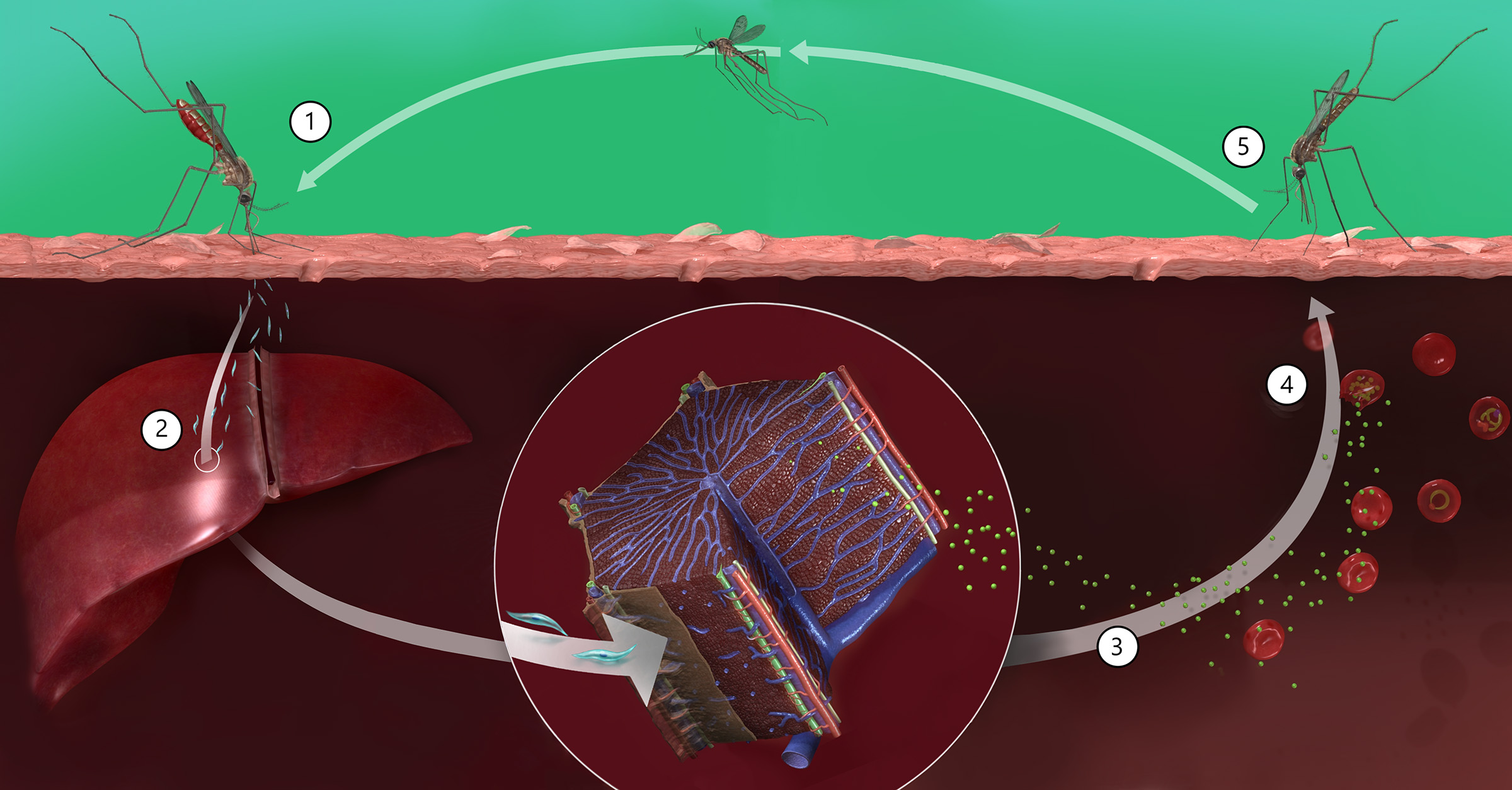
The 25th of April marks World Malaria Day. Malaria is a disease contracted from mosquito bites. Specifically, from mosquitoes that are infected with a parasite from the genus plasmodium.
(1) When an infected mosquito bites your skin, it can transfer the parasite to you. (2) These parasites travel to the liver where they mature. The parasites multiply via asexual reproduction, forming into merozoites. (3) The merozoites are released from the liver cells and travel into the red blood cells. (4) Here, they further multiply and complete their life cycle. (5) The parasite can then transfer to uninfected mosquitos when they bite the skin of the infected person. In this way, malaria can spread as the cycle repeats again. Malaria causes symptoms such as fever, chills, headache, nausea, diarrhoea, pain, fatigue, rapid breathing and rapid heart rate.
There has been an interesting adaptation that has developed in malaria-endemic areas. In these areas, there is a higher frequency of people who are sickle cell carriers and this trait helps protect them against malaria.
The sickle cell gene affects haemoglobin in the red blood cells. Those with both sickle cell genes develop sickle cell disease. Normally, red blood cells are disc shaped. In sickle cell disease, the red blood cells become crescent moon shaped. These are known as sickle cells. The sickle cells can also become sticky and rigid. This can ultimately lead to an obstruction of blood flow as the sickle cells can get stuck and collect in the blood vessels.
However, sickle cell carriers, also known as the sickle cell trait, have one sickle cell gene and one normal haemoglobin gene. This combination means that malaria does not affect them as much. It has been found that there are less parasites found in the blood of those with malaria and the sickle cell trait. This is due to the high turnover of the sickle cells, which prevents the parasites from completing their full life cycle.
Check out the Blood Detailed Model in Complete Anatomy and share this post to spread awareness on this World Malaria Day!